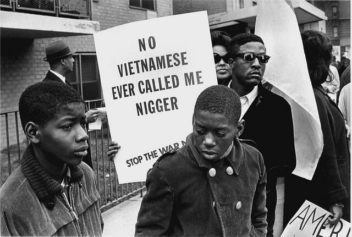It has been 50 years since President Lyndon B. Johnson signed the Civil Rights Act of 1964, and there certainly has been notable progress in lessening the brutal effects of racism in America.
Dan Chu, director of the Sierra Club’s “Our WildAmerica” campaign, claims in a piece on the Huffington Post that the Civil Rights Act “changed America’s views of each other.”
But there’s no doubt the anniversary has dampened by the series of racially charged killings over the summer, casting doubt on the presumed progress America had been making towards change.
Chu writes that the signing of the Civil Rights Act, along with the signing in 1964 of the Wilderness Act, which protected over 9 million acres of federal land, were “bold and effective responses to long standing problems.”
In 1960, President John F. Kennedy was alarmed by a report that detailed some of the struggles of African-Americans: More than half of African-American housing had been “judged unacceptable”; Life expectancy “was seven years shorter than for white Americans”; African-American infant mortality was twice as great as for whites. It also revealed to Kennedy “that fear and racially based ignorance would cause property values to drop” should an African-American family move to an all-white neighborhood.
Even though President Kennedy was assassinated before he was able to pass the historic legislation, his successor President Johnson “acted with determination and political prowess” to pass the legislation and “lead our nation in the direction of fulfilling the constitutional promise of equal justice for all,” Chu writes.
Since the Act was signed, “the African American middle class has grown in large part by the outlawing of race-based discrimination,” Chu says. “In almost every economic category, African-Americans have made gains (although still not at the same rate as white Americans). The median African American family income (in inflation-adjusted dollars) has risen from $22,000 in 1963 to more than $40,000 today (although that’s still just two-thirds of the median income for all Americans).”
Chu reports that the African-American poverty rate, which was more than 40 percent in the 1960s, is down to around 27 percent and high school graduation is at 85 percent, compared to 1964 when just one in four African-Americans above the age of 25 graduated from high school. Yet the unemployment rate for African-Americans is still twice that of white Americans.
It’s been 50 years since President Johnson passed the Civil Rights Act and Chu writes that “much has changed for the better,” but “more still needs to be done.” Chu says that along with celebrating the anniversary, it is also time “to rededicate ourselves.”


